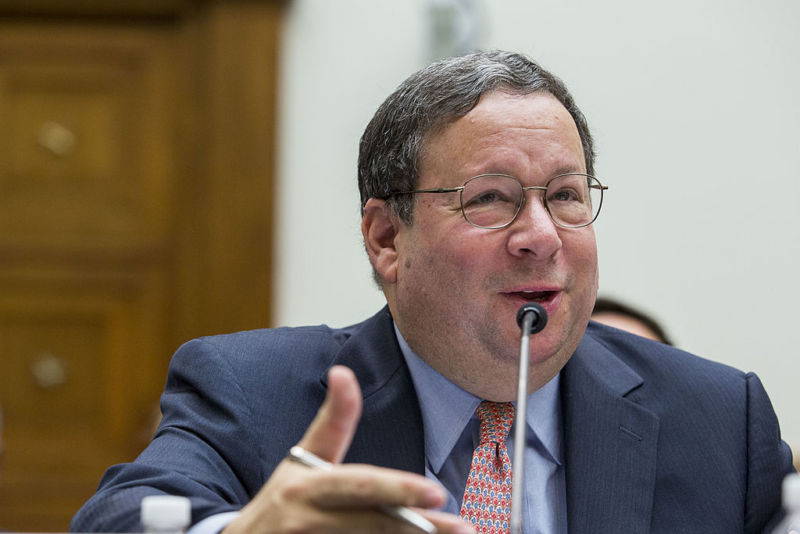
President Donald Trump said on the campaign trail that his administration would take a tough stance against mergers and consider breaking up Comcast and other conglomerates. But nearly a year into his presidency, it's now clear to Comcast's top government official that the Trump administration will instead allow more mergers than the administration of Barack Obama.
"Overall, this president and this administration is likely less hostile to horizontal growth or even vertical growth in the telecom space and elsewhere," Comcast Senior Executive Vice President David Cohen said in an interview, according to a Recode article today.
Horizontal mergers are deals between companies that make the same goods or services and compete against each other, like the Comcast/Time Warner Cable merger that was blocked by the Obama administration. (Cohen took the lead in pitching that deal to government regulators.) Vertical mergers join companies that operate at different levels of an industry's supply chain.
The Trump administration's apparent willingness to approve both horizontal and vertical mergers isn't a "license for 'anything goes,'" Cohen told Recode. But Cohen said there's "pretty clearly going to be less hostility and a greater willingness to allow the market to work."
That's in stark contrast to statements made by Trump when he was seeking voters' approval. Trump promised to stop AT&T's purchase of Time Warner Inc., which is now on the verge of being approved. Trump also talked about breaking up Comcast, saying, "Comcast's purchase of NBC concentrated far too much power in one massive entity that is trying to tell the voters what to think and what to do. Deals like this destroy democracy, and we'll look at breaking that deal up and other deals like that. That should never, ever have been approved in the first place; they're trying to poison the mind of the American voter."
No big Comcast mergers under Trump—yet
Cohen held multiple fundraisers at his home for Democratic presidential candidate Hillary Clinton in 2015.
Comcast hasn't proposed any big mergers since Trump became president, but in May it announced an agreement with cable company Charter that could lead to a merger with a wireless company. Comcast and Charter agreed to cooperate in their plans to sell mobile phone service, and for one year the cable companies will work only with each other when it comes to acquisitions in the wireless industry.
Comcast and Charter then held some talks with Sprint, though nothing came of them.
"We're not out there saying, 'Oh my god, to survive we need something else to buy,'" Cohen said. "On the other hand, we have never viewed ourself from being foreclosed from the acquisition marketplace, either domestically or internationally."
Verizon CEO Lowell McAdam said in April that he'd be willing to have merger talks with just about any company, including Comcast, although more recently McAdam said he's no longer interested in merging with a cable company.
Cohen skeptical about Sinclair/Tribune merger
Cohen doesn't necessarily want every merger to be approved. He expressed skepticism about Sinclair Broadcast Group's attempt to complete an acquisition of Tribune Media Company that would let Sinclair reach 72 percent of TV-owning households in the US.
Cohen said the merger might have some "potential good things for [Comcast], particularly on the NBCUniversal side," but that it could also raise cable rates.
"I think having that large a bloc of local broadcast affiliates, it almost inevitably [will] put significant upward pressure on retransmission consent fees, which are the No. 1 driver of increases in cable prices for consumers these days," Cohen told Recode.
Of course, the Comcast-owned NBC also charges programming fees to other cable companies, contributing to the high prices paid by subscribers of many TV services. That's one reason some Democratic lawmakers oppose the combination of telecom providers and programmers—a cable company that owns TV channels can drive up the rates its competitors pay for content.
But despite Trump's campaign statement, there is no indication that Comcast and NBC will be broken up. And Cohen seems confident that Comcast wouldn't meet any great resistance from the Trump administration if it tries to buy another cable company or programming giant.
Disclosure: The Advance/Newhouse Partnership, which owns about 13 percent of Charter, is part of Advance Publications. Advance Publications owns Condé Nast, which owns Ars Technica.
reader comments
148